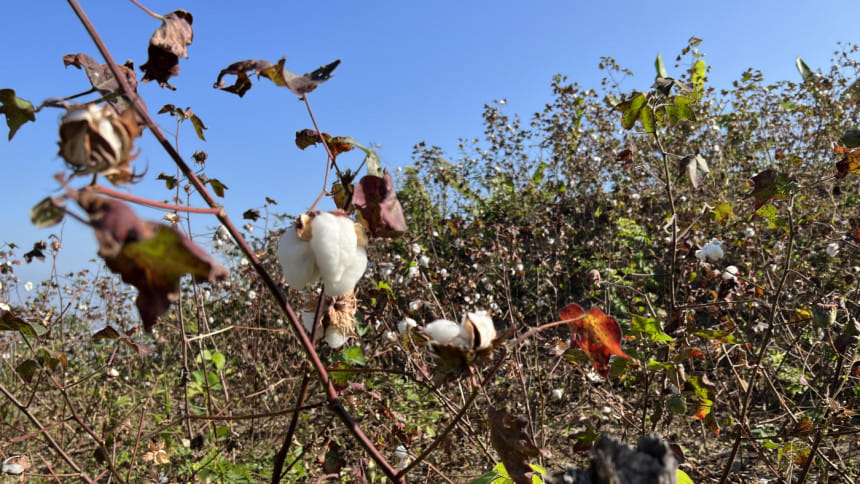Bangladesh adopts GM cotton

Bangladesh on Sunday released two varieties of a genetically modified (GM) cotton for domestic cultivation, aiming to increase yields and reduce import dependence.
The GM cotton has genetic traits taken from a soil-dwelling bacterium - Bacillus thuringiensis (Bt) - that effectively fights bollworm, a caterpillar responsible for damaging cotton yields.
This is the second GM plant to be introduced in the country. Bangladesh joined the GM-crop cultivating nations in 2014 introducing Bt brinjal, the first GM food crop in South Asia.
At least 20 percent of the country's demand for cotton, or around 15 lakh bales, can be met by locally cultivating the Bt and hybrid varieties of cotton, said Agriculture Minister Muhammad Abdur Razzaque.
Addressing a seminar on the introduction at Cotton Development Board in Dhaka, he said there was a demand for 16 lakh bales of cotton for domestic consumption.
Another 85 lakh bales of cotton are currently required by the country's spinning and weaving industries for the production of yarn and fabrics for export-oriented garment factories.
However, local growers can only supply two lakh bales of cotton.
Almost all of the required cotton is imported from different countries like India, Pakistan, Brazil, Australia, Argentina and from South African and central Asian countries at a cost of around Tk 33,000 crore a year.
Many countries that used to import cotton eventually turned into cotton exporting nations cultivating Bt cotton, said Md Fakhre Alam Ibne Tabib, executive director of the CDB, in a keynote paper.
Bt cotton was cultivated for the first time in 1996 and neighbouring India took it up in 2002, he said.
The average yield of Bt cotton is 4,500 kilogrammes (kg) per hectare of land, which is 15 percent to 20 percent higher than the local variety, while the production cost is 12 percent to 15 percent lower, he said.
Production of a kg of cotton locally can save three US dollars and production of a tonne of cotton seed can create employment for five persons, he said.

 For all latest news, follow The Daily Star's Google News channel.
For all latest news, follow The Daily Star's Google News channel. 




Comments